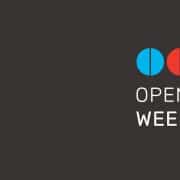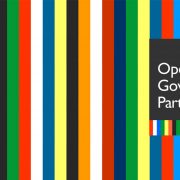|
Getting your Trinity Audio player ready...
|
In part two of our series on the Open Government Partnership (OGP), we take a closer look at South Africa’s action plans – that is, the efforts its government is making to improve openness and transparency. Part one gave an overview of OGP and South Africa’s role in it.
The OGP was launched in 2011 as an international platform to work towards more open, accountable, responsive and corruption-free governments. The eight founding countries were Brazil, Indonesia, Mexico, Norway, Philippines, South Africa, the UK and the US, and the initiative now includes 69 countries, after Sri Lanka, Cote D’Ivoire, and Papua New Guinea joined in October.
In all of these countries, government and civil society are working together to develop and implement ambitious open government reforms. They do this through action plans, which centre on a range of ambitious commitments – these, the OGP stipulates, should “stretch the government beyond its current state of practice, significantly improving the status quo by strengthening transparency, accountability and public participation in government.”
These could be new open government initiatives, or improvements on existing, ongoing reforms.
“There is great potential for OGP to advance democracy, human rights and natural resource protection in Africa. However, belonging to OGP should not be seen as an automatic stamp of approval, it is a good first step but what matters is the quality and completion of OGP commitments,” said Mukelani Dimba, executive director of the Open Democracy Advice Centre and a member of the OGP steering committee.
OGP participating countries operate on a two-year action plan cycle, in which there are no gaps between the end of the last action plan and the beginning of the new one. This means every country will be implementing a plan at all times. Plans are evaluated periodically by the OGP independent review mechanism (IRM) and countries are also expected to conduct self-assessments of their progress.
In South Africa, the OGP process is driven by the Department of Public Service and Administration (DPSA), and is guided by consultation with civil society groups and union representatives.
Taking credit for work already done
In its first action plan South Africa identified a grand challenge of improving service delivery, and put forward eight commitments, which were as follows:
- Develop and implement a Batho pele (people first) framework for public servants, which would manage accountability and consequences
- Formalise partnerships with civil society organisations in all nine provinces to establish service delivery improvement forums which will provide timely citizen report cards on service delivery levels
- Conduct an outreach campaign to inform citizens and hold government accountable
- Enhance national integrity through building a national anti-corruption forum and an anti-corruption hotline (This was retrospectively changed in the self-assessment to Capacity development of anti-corruption officials)
- Approve guidelines on sanctions for corruption-related cases, and increase transparency so that the public will know what action has been taken
- Develop a written guideline and ensure every public sector department has a functional citizen engagement unit to proactively engage with civil society
- Enhance the progressive realisation of socio-economic rights and enable citizens to track public expenditures
- Establish the feasibility of a single comprehensive and publicly accessible portal of environmental management information.
By the time the first IRM progress report was published in September 2013, the country had completed only one commitment, that of establishing the anti-corruption hotline and forum – but this was only because the hotline already existed, having been established in 2004 before the commitment was drawn up, and so did not give the government any real work to do.
“The Anti-Corruption Hotline was established in 2004, prior to the commitment, and the commitment did not move practice beyond the already existing baseline. The National Anti-Corruption Forum was hampered by a lack of credibility. Efforts to renew public trust should complement the establishment of new institutions,” stated the progress report.
The other corruption-related commitment, that of establishing guidelines for sanctions, was behind schedule and in fact, had only been completed to a limited degree. “No measurable activities were reported regarding implementation,” the report noted.
Of the other six commitments, two were described as being unclear with no measurable deadlines, three were on schedule, and one was behind schedule. The accountability framework was one of the two unclear commitments.
South Africa was not alone in this under-performance, however – the report noted that there were a group of countries which had completed or made significant progress on many commitments, but a larger group had completed less than half of all commitments.
In its first mid-term self-assessment report, released in April 2013, the DPSA claimed that four commitments were fully implemented or addressed, while three were partially addressed – a vastly different picture to that painted by the IRM report. One commitment had been dropped.
In its recommendations, the IRM report said that the OGP initiative is not sufficiently publicised in South Africa. “A number of relevant stakeholders are unaware of the OGP. The level of awareness is also unsatisfactory among government agencies that do work related to the initiative. This poor state of awareness suggests that efforts must be made to publicise the OGP initiative and the South African action plan.”
The OGP was not overly impressed with South Africa’s efforts, saying: “A number of South Africa’s commitments involved activities that did not stretch government practice beyond the baseline that existed prior to joining the OGP. This makes it difficult to review the progress of government in fulfilling those commitments.”
The report pointed out that the South African government had included activities that took place before entering OGP as successful implementation. “This process results in retrospective fulfilment that calls into question the purpose of selecting those goals,” noted the report.
Second action plan
In South Africa’s second action plan, which was developed for the 2013-2015 period, commitments included the following:
- Develop and implement an accountability/consequences management framework for public servants
- Establish service delivery improvement forums
- Mainstream citizen participation in the public sector
- Develop an integrated and publicly accessible portal of environmental management information
- Development of an online crowd sourcing tool that will allow the public to submit data on protected areas and conservation areas
- Implement the schools connectivity project – this was highlighted in an annexure as the country’s flagship project.
- Know Your Service Rights and Responsibilities campaign
Of the commitments in the first action plan, five were modified and carried over, while the rest were new commitments. There was no mention of the guidelines for sanctions on corruption-related cases, which seemed to have fallen away without any resolution.
Looking ahead
South Africa is now working on its third action plan, which applies to the period 2015 – 2017. It has put forward eight commitments in the draft, which are:
- Strengthening citizen-based monitoring, for measuring performance especially at the service delivery point
- Open budgeting, which would make information publicly available in an accessible platform and allow citizens to track government spending on commitments
- Back to Basics programme, which would promote public confidence in local government
- Development of an integrated and publicly accessible portal for environmental management information
- Provision of national land cover data for decision-making processes and to educate the public on data available and the trends of environmental degradation
- Development of a pilot open data portal, which would make available data already published by government
- Roll-out of an open government awareness-raising campaign, which would boost awareness in communities and the public regarding South Africa’s obligations in the OGP
- Implement South Africa’s action plan on the G20 High Level Principles on Beneficial Ownership Transparency to improve the transparency of legal persons and arrangements in order to protect the integrity and transparency of the global financial system.
The eighth commitment is one that should already be in progress, said Transparency International. In a report released last week, the global corruption watchdog revealed that South Africa is one of the majority of G20 countries which have failed to honour their undertaking to fight corruption through implementing more transparent business practices that would make it difficult for the corrupt to hide or move money across borders. This includes enacting legislation to require the disclosure of the beneficial owners of companies and trusts.
The principles were adopted at the G20 meeting in Brisbane in November 2014, with the group saying that financial transparency was a high priority. To date, progress in most G20 countries in implementing the principles has been limited.








